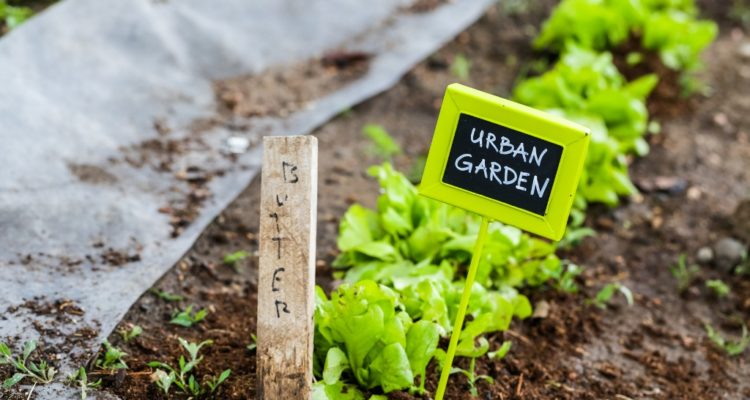By Priyanka Amar Shah
Visit ORGANIC SHOP by Pure & Eco India
In the concrete grid that is your urban home, how about creating a welcoming space where you and your family can relax, exercise, and grow pesticide free food, all at the same time? Having your own kitchen garden can be both fun and rewarding. Below are a few easy steps to start one:
Sunny Side In: The amount of sunlight a plant receives is a crucial factor to consider. Choose a location where you receive minimum of 4 to 5 hours of sunlight every day.
“Some plants yield better when surrounded with their companion plants. For example tomato grows better when grown with basil or marigold while spinach grows better with celery or eggplant”
Grow What You Eat: Plant selection is another important step. If you’re a first time gardener, begin with easy growing herbs like basil, mint, peppermint, carom, curry leaves, or vegetables like spinach and fenugreek whose seeds can be easily found in your kitchen. Start small and slowly increase the size of your garden size with experience.
It is believed that plants are like human beings and thrive on companionship. Some plants yield better when surrounded with their companion plants. For example tomato grows better when grown with basil or marigold while spinach grows better with celery or eggplant.
Container Gardening: Containers are easy to maintain as well as to move from one place to another. Since space is an issue, especially in crowded metros like Mumbai, experiment with different kinds of containers like hanging ones, round or rectangular shaped ones, depending on the space availability. You can also recycle and reuse paint cans, old plastic bottles, old crates, and so on as pots. Ensure that holes are drilled in your containers for excess water to drain out.
Food for Plant: Well fed plants are healthier and tastier. Most of the edibles enjoy well drained soil. Create your own potting soil by mixing soil, compost and coco peat in equal quantities. Plants need to be fertilised regularly because most soil does not provide the essential nutrients required for optimum growth. Coco peat/coconut husk helps in retaining water for a longer period of time. Regularly mulch your plants by adding dry leaves. Mulching serves not only as a weed suppressor but also as a barrier between the soil and heat, cold and wind.
Get Your Hands Dirty: Once you have the sunny spot, container and soil ready, pot your plant. Fill 3/4th of the container with potting soil. Place the plant over this 3/4th potting soil and then fill the rest of the pot (1/4th pot) with soil again. In order to settle the soil, place 4 fingers on the soil around the base of the plant and press gently. If you’re using seeds like coriander, spinach, wheat or fenugreek, then simply fill the container with soil and gently sprinkle seeds over the soil. Soaking them overnight gives effective results.
Water Regularly: Ensure that you water your plants regularly. Keep in mind that the soil must always be moist but not soggy. Overwatering is worse than under watering, as it tends to rot the roots of the plant. Remember, you can revive a dry plant but not one whose roots have drowned in water!
Avoiding Pests: Harmful pests and insects cannot tolerate plants such as garlic, onion and chive. Grow these varieties around your other plants, which would in turn repel pests and insects. Another natural way to keep insects away is to use neem oil. You can easily find one at your chemist nearby.
Enjoy The Fruits of Your Labour: The more you use the produce, the better the growth of the plant. You can harvest up to 75 percent of a plant at one time as long as you leave enough for it to continue growing. Ideally, harvest in the morning before it starts getting hot. Use scissors to snipe the harvest.
Once you have gotten your hands dirty and been successful with easy growing herbs, you can shift to easy growing vegetables like eggplant, okra, and fruits such as lemon, papaya, star fruit, and so on.

Priyanka Amar Shah is an avid urban gardener and founder of iKheti, a social enterprise created to help individuals and communities grow healthy consumable crops within their homes



Really nice post and perfectly explained; it very much helps us. Thanks